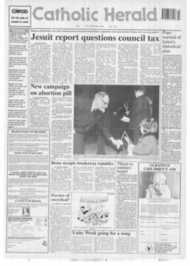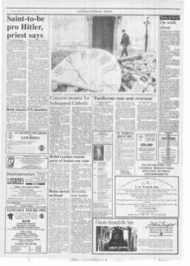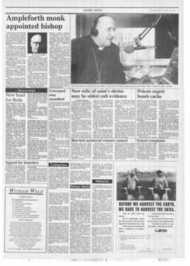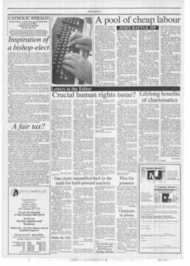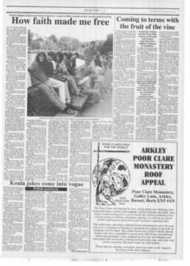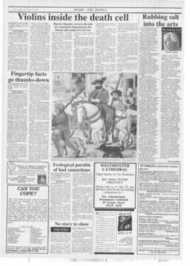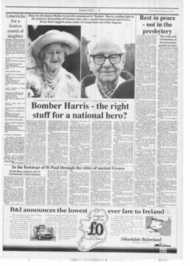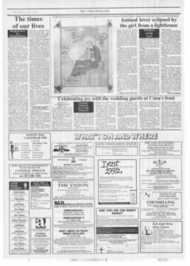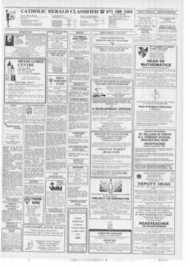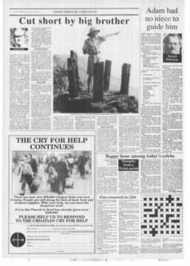Page 1, 17th January 1992
Page 1

Report an error
Noticed an error on this page?If you've noticed an error in this article please click here to report it.
Tags
Share
Related articles
Poll Tax Hardship
A Heavy Poll
Goodman's Good Sense
Poll Tax Attack
No Tears For Poll Tax Demise
Jesuit report questions council tax
by Paul Goodman SIGNIFICANT reservations about the government's council tax the replacement for the poll tax which was widely attacked by church groups have been expressed by a report published in advance of a parliamentary debate to be held next week.
Entitled The Council Tax, the discussion document written by Fr Chris Moss, a Jesuit, and published by the Von Hugel Institute, a research body based at the Cambridge Catholic college St Edmund's has been sent to
Environment Secretary Michael Heseltine, MPs, and English and Welsh bishops.
It claims that although the new charge is a significant improvement over the poll tax, "there still remain areas for serious concern". The document also holds out the prospect of supplementing the council tax with a local income tax to make it fairer.
"It is not good enough to argue that there will be winners and losers, since the poorest in society those at or near to the level of income support, who are losers, are compelled to go without adequate food, heating, and clothing," writes Fr Moss, referring to the difficulties of finding a fair system to fund local government finance.
He quotes from an account outlining the problems caused by the poll tax: "for those who are poor or are living in debt, there will be a stark choice between paying the community charge or buying basic necessities for decent diet and clothing. Or else one can go into greater debt. All this at a time when social security payments for basic needs such as clothing, and basic events such as being born and being buried, have been phased out."
Fr Moss adds: "it is imperative that this experience with the poll tax should not be repeated with the council tax...the extent to which the council tax will be such will depend in part on the details of the rebate scheme which have yet to be published."
His main concern is that the council tax may hit the incomes of relatively poor people living in relatively expensive houses: the tax proposes to group properties into eight bands, with different tax rates applying to each band.
"It may be noted that it would be easier to'nake local taxation more progressive by introducing a supplement to the council tax of a local income tax...this scheme would also have other advantages relating to the autonomy of local government," he writes.
"A local income tax as a supplement to the council tax would have the effect of both widening the discretionary tax base of local authorities, and thus strengthening their autonomy, as well as making it easier to achieve a progressive local taxation system." He also argues that in order to avoid a poverty trap, consideration should be given to raising the threshold for liability to the council tax.
Fr Moss's report offers the most substantial Christian critique to date of the council tax. The poll tax was the subject of wide criticism from church groups and social justice campaigners particularly north of the border and at least three priests refused to pay and faced jail sentences.
Fr Moss urges the abolition of imprisonment for poll tax debts, and the immediate scrapping of the payment of 20 per cent of poll tax charges by those on benefit. His view was backed by Paul Goggins, national co-ordinator of Church Action on Poverty, who supported Fr Moss's general views on the shortcomings of the government's proposed banding system Ile also called for a fairer system of grant distribution.
Fr Moss advances the view that taxation "provides the means to meet common needs, and to move towards a Christian vision of society in which the world's goods arc shared, and need and want eliminated."
He makes it clear in the introduction to his report that his views are his own, "not those of the Von Hugel Institute".
Copies of The Council Tax are available from The Von Hugel Institute, St Edmund's College, Cambridge CB3 OBN
blog comments powered by Disqus


